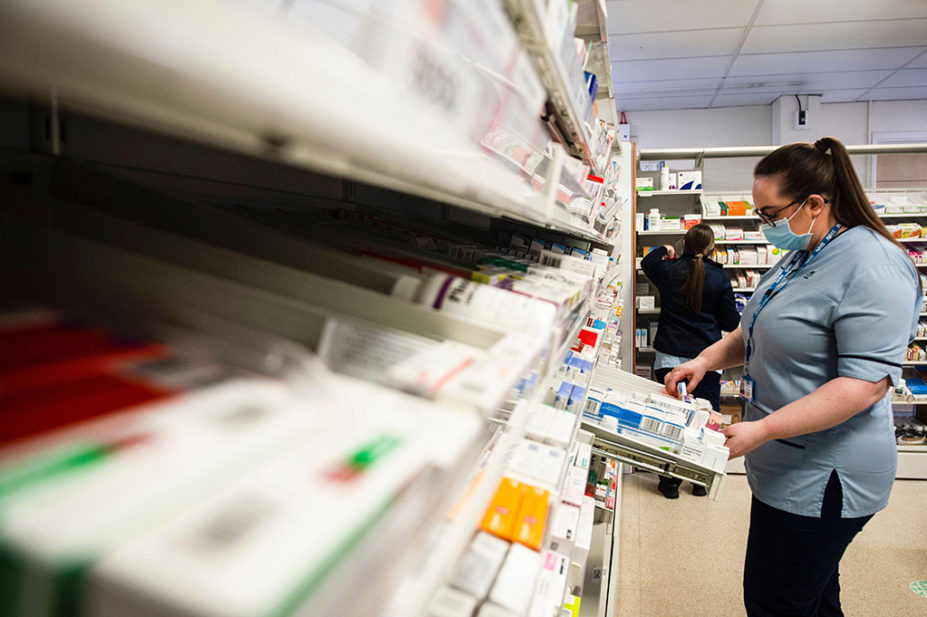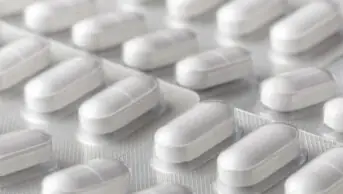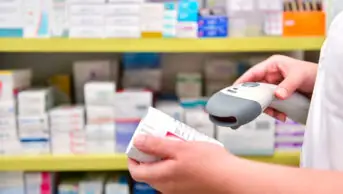
PA Images / Alamy Stock Photo
Prices of some antipsychotic medicines have increased by 1,200% in the five years since July 2017, costing the NHS an additional £33m annually, according to an analysis by The Pharmaceutical Journal.
The number of antipsychotic medicines dispensed in the community has also continued to increase year-on-year, with leaders in mental healthcare warning that NHS budgets will be “stretched further than ever before” as a result.
An analysis of drug tariff reimbursement prices for England and Wales by The Pharmaceutical Journal shows that 56 medicines classified in the British National Formulary as “drugs used in psychosis and related disorders” increased in price between July 2017 and June 2022.
These include risperidone 6mg tablets, which have experienced the largest price increase from £3.09 in July 2017 to £41.16 in June 2022 — an increase of 1,232%.
At 2021/2022 prescribing levels in England, this increase equates to an additional cost to the NHS of £336,011 per year, contributing to its overall additional cost of antipsychotics at £32,993,568 per year.
Despite having the second highest price increase at 622% over five years, haloperidol 500 microgram tablets make up the majority of this additional spend, costing the NHS £14.3m more at its June 2022 price of £159.22 than at its July 2017 price of £22.05 per pack of 28 tablets, when prescribing levels were consistent with those in 2021/2022.
In December 2019, the Department of Health and Social Care (DHSC) issued a supply notification for haloperidol (Serenace; Teva) 500 microgram capsules in December 2019, warning that the product, which cost £1.18 per 30 capsules, would be “out of stock for the foreseeable future”.
Instead, the government enabled pharmacists to supply haloperidol 500 microgram tablets, which are solely manufactured by Crescent Pharma, without patients having to return to their GP for a new prescription.
Since then, Teva has discontinued production of haloperidol 500 microgram capsules, so the price of the tablets continued to increase.
Crescent Pharma was approached for comment on the reasons behind the price hike for haloperidol, but did not respond in time for publication. However, other manufacturers and trade bodies have said an increase in demand may explain the increases (see Box).
Ciara Ni Dhubhlaing, immediate former president of the College of Mental Health Pharmacy, said that despite the cost, it is “unlikely” patients would have been switched to another medicine.
“Haloperidol is used for maintenance treatment but also for management of aggression and violence in patients who many carry a risk to themselves or others — i.e. for rapid tranquilisation — so despite the costs and occasional supply issues requiring use of unlicensed products, I would expect its use to have continued unchanged,” she said.
According to data published by NHS Business Services Authority on 7 July 2022, 13.2 million antipsychotic items were dispensed in 2021/2022, an 11.2% increase from the 11.9 million antipsychotic items dispensed in 2017/2018.
In response, Sean Duggan, chief executive of the NHS Confederation’s Mental Health Network, said: “[While] these medications will be essential for many people and it is down to clinical decision making, health leaders will be concerned that the spiralling costs of drugs used to treat psychoses and related disorders will erode their budgets even further and given that they will only have a limited financial envelop, leave them with less money to spend on other forms of care for patients.
“It is also worrying that the prescribing costs of these drugs are counted as part of the mental health investment standard (MHIS), which risks creating an illusion that systems are spending more money on other forms of patient care when this is not the case.”
The MHIS is a mandatory requirement for clinical commissioning groups and integrated care systems to increase their spend on mental health services by at least the same proportion as their overall increase in budget allocation each year.
A spokesperson for the Royal College of Psychiatrists warned: “Increased medicine costs, combined with increased demand for mental health services, will result in budgets being stretched further than ever before.
“It’s vital that the government responds to these pressures to ensure all patients can access the care they need, when they need it.”
In July 2018, the government passed two pieces of legislation — the Health Service Products (Provision and Disclosure of Information) Regulations 2018 and the Health Service Medicines (Price Control Penalties and Price Control Appeals Amendment) Regulations 2018 — enabling the DHSC to request cost information from manufacturers as part of investigating “potentially unwarranted” generics prices and introduce penalties where limits are exceeded.
However, the government’s second annual review of the legislation, published in October 2020, admitted that “no cost information has been requested so far” from manufacturers regarding their generic Category A medicines, so no action has been taken to reduce prices, which The Pharmaceutical Journal revealed in November 2020 would cost the NHS an additional £76m per year.
The legislation’s third annual review is overdue for publication and the DHSC has not responded to requests for comment on the tariff price increases over the past five years.
Why are the prices of antipsychotic medicines increasing?
The prices of medicines on the drug tariff are not always an exact representation of the amount paid to suppliers by the NHS, but instead reflect the amount reimbursed to community pharmacies for purchasing the medicines from the suppliers.
Nevertheless, Mark Samuels, chief executive of the British Generic Manufacturers Association, told The Pharmaceutical Journal that purchase prices of mental health medicines could be getting more expensive because of an increase in prescribing.
“The UK prescribing of mental health medicines has increased significantly in recent years,” he said. “To meet that demand, manufacturers have to invest in additional factory capacity for both active ingredients and the finished product, which will be underlying factors into why medicines prices may have increased in this area.”
David Solomon, director of manufacturer Genesis Pharmaceuticals, confirmed that its purchase prices of chlorpromazine 25mg, 50mg, and 100mg tablets, which saw their tariff prices increase by 345%, 404% and 367% in five years, respectively, have also been increasing.
These prices increased after competing manufacturers exited the market, forcing Genesis Pharmaceuticals to invest more in increasing supplies to meet demand.
“There aren’t that many competitors, it’s difficult to source the active ingredient [and] we only have one factory that we can make it at,” he said.
In these instances, Solomon says that if their competitor does re-enter the market, the company “might have to throw some of [their product] away, because we can’t sell it, so we have huge costs in doing that, but we can also put in very large price rises to compensate us”.
Read the full analysis here.


